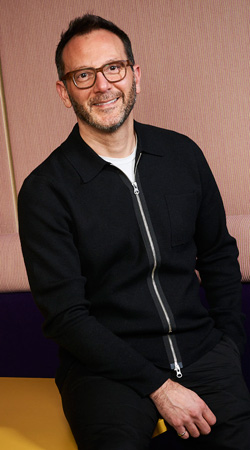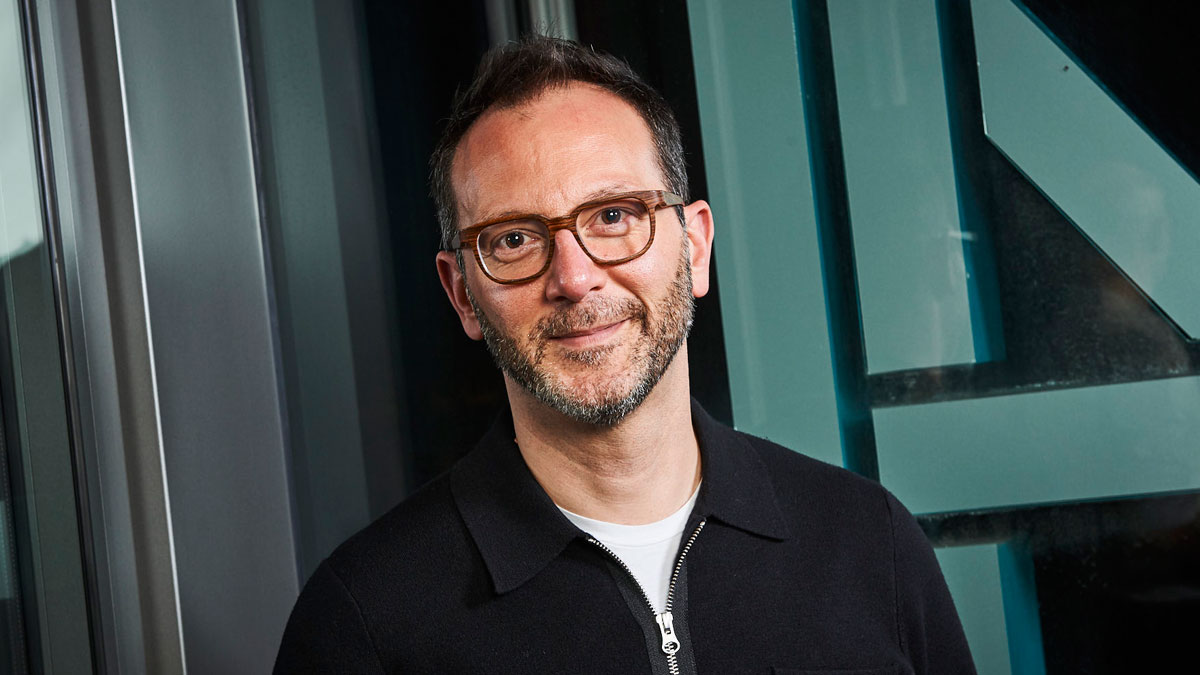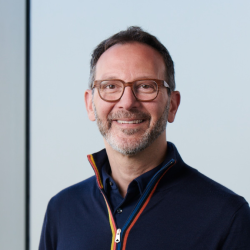Zaid Al-Qassab is a bit like the man from Del Monte – he says ‘Yes’. A lot. Channel 4’s chief marketing officer didn’t get where he is today by turning down opportunities, however strange or potentially disruptive.
“I’ve used a few principles in my career choices and they’ve stood me in good stead. That’s possibly post-rationalisation but having fun was principle number one. I don’t see how anyone can be successful in a job they don’t enjoy. Being a businessman sounded dull and boring. But, from day one, I thought marketing was a lot of fun.”
Chop and change
Al-Qassab arrived at Channel 4 in September 2019 from BT. Prior to the telecoms giant, he was CMO for VC-backed start-up, HouseTrip, after honing his craft for 20 years at Procter & Gamble. But don’t let his long tenure at P&G mislead you. Al-Qassab is not one for settling into a niche and coasting along. While at the FMCG giant, he took on a wide variety of roles, from brand manager to commercial and operations director and ultimately managing director, even whisking his family off to Geneva and then Greece, all in the name of experience.
“When they opened the international headquarters in Geneva and asked if anyone wanted to go across, I ended up as the marketing director for a huge product category in Europe. Then they said, we’ve acquired some interesting companies in Greece and no-one knows how to run them so I said, yes, I’ll do that. I didn’t speak Greek. I ended up doing a job that was much more diverse operationally after that, simply because I fancied coming back to the UK and that was what was on offer.”
Leaving a blue chip like P&G for an accommodation ecommerce site doesn’t make him the first ‘classical’ marketer to make a foray into the start-up world. In fact, Al-Qassab views the agile dotcom sector as a vital – and accelerated – training ground for the modern marketer.
“It felt like a long-term investment. It was digital and start-up and I would go to work, I wouldn’t know what I had to do and I wouldn’t understand it. Sometimes I would wonder, am I even capable? I was thrilled. There was a lot of learning to become much more digital at the right stage of life.”
Reaching out
This is quickly apparent in his current role at Channel 4. The broadcaster currently making multiple forays into digital content and platforms. This is at a time when linear TV finds itself disrupted, not just by streaming, but also a challenging advertising market.

“If you think about the jobs I’ve taken, they’re all about massive change. The job I took at the start-up was about setting up a new ecommerce model. BT was a tired brand that needed a massive shot in the arm of customer centricity and rejuvenation. At Channel 4, it’s not the brand that’s in trouble, but its means of distribution is in jeopardy. We need to continue [to support] the strength of the brand and reach people in a new way.”
That ‘new way’ at Channel 4 is many and varied. As well as its linear TV channels, there is its on-demand All 4 resource with acres of content, both past and present. “One way to deal with change is to constantly be on the lookout for new revenue streams. Sometimes, it’s small sidelines and sometimes they’re great, big changes to the business model to earn core revenue from different places.
“It would be foolish to ignore the fact that linear TV viewing is declining and equally foolish to ignore that content isn’t declining. How do you earn revenue from that, given that it’s now accessible in different platforms? The means of reaching the audience has changed but the need hasn’t.” Al-Qassab notes that branded entertainment looks set to be a promising revenue stream in the future: “We have a fabulous understanding of a very valuable audience and an amazing means of distribution to reach it.”
The business is also experimenting with new ways of attracting advertisers through 4Sales and its Greenhouse Fund. The former is offering free ad production through its in-house agency, 4Creative, to help companies make the most of advantageous air rates during the pandemic, until August 2020. The latter will help encourage those SME brands who haven’t previously considered TV advertising by match funding slots. To benefit from some of the £3m fund, advertisers have to commit to only advertising via Channel 4 for six months. Energy drink, TENZING, was one of the first to join the scheme.
This is just one example of the broadcaster’s ability to respond quickly to circumstances. It’s clear that Al-Qassab enjoys the rapid-fire challenge. “When I worked in P&G, it had a nice, long planning horizon on new goods. There was absolutely no need to have [advertising] capability in-house. At Channel 4, a large part of what we’re doing is turning briefs around in a matter of days. Those briefs can be in the hundreds and on small budgets. 4Studio needs to be incredibly reactive to the news of the day or to a new video that goes viral. Having that in-house is incredibly valuable to us.”
Moving towards inclusivity
Before lockdown, Al-Qassab found himself moving between London and the North of England, where Channel 4 moved its base in autumn 2019. Recognising the move outside the capital is an unusual one, the company heralded its shift with a typically tongue-in-cheek banner: “Didn’t think Channel 4 knew there was life outside the M25” was plastered all over its new Leeds HQ.
The geographical variety mirrors the broadcaster’s aim to break down norms and the make-up of the typical media organisation – London-centric, and overwhelmingly white.
Tackling diversity is high on the agenda today for media companies of every stripe, including Channel 4. However, Al-Qassab believes the business is already in a better position than most to fulfil its inclusivity and anti-racism obligations.
“Channel 4 is in a privileged position because, having been set up with the purpose of reaching underserved audiences and ones that are not well-catered for by the media landscape, we have always been known as a champion of diverse audiences. So, we get applicants in line with or above the levels of diversity in the country at large which I understand is rarely the case in professional organisations.”
There will be no laurel-resting here, however. “I wouldn’t want to give the impression that we’re perfect. We’ve announced six different commitments specifically on the area of anti-racism but this is something that takes effort and consciousness and doesn’t happen overnight.”
His approach to seeking out new talent mirrors his own career – the non-linear progression within his long tenure at P&G or switching from FMCG to Telecoms, global conglomerate to ecommerce start-up. He firmly believes organisations should stop trying to look for the square pegs for those square holes. “It’s about opening your mind about where you go looking [for talent] and making sure you’re not using a cookie cutter approach to find someone to fit your role. [People] fail to notice a wonderful person that may not tick all the boxes but they have all the ability and expertise that you would ever need.”
Al-Qassab’s final words about the challenge Channel 4 faces going forward could easily apply to any marketer looking to make an impression. “I believe that even great, successful brands have to renew themselves every few years. They have to reconnect with their audience, engage more deeply and change the ways that they reach people in a digital world. Never mind that Channel 4 is an incredibly strong brand. That counts for nothing if you can’t evolve and make your audience keep loving you.”































